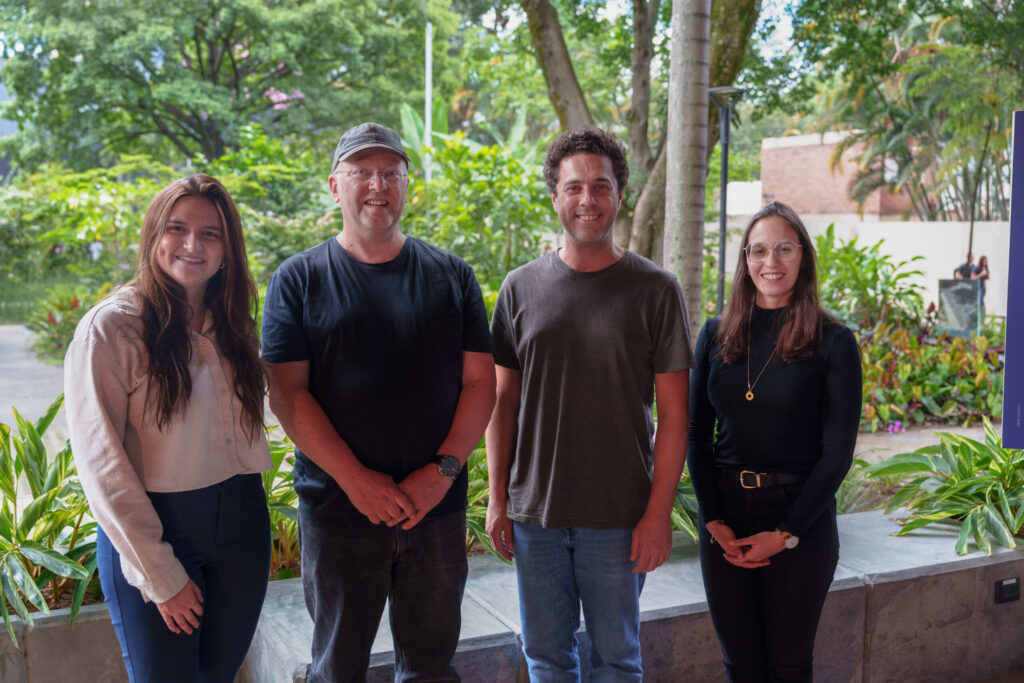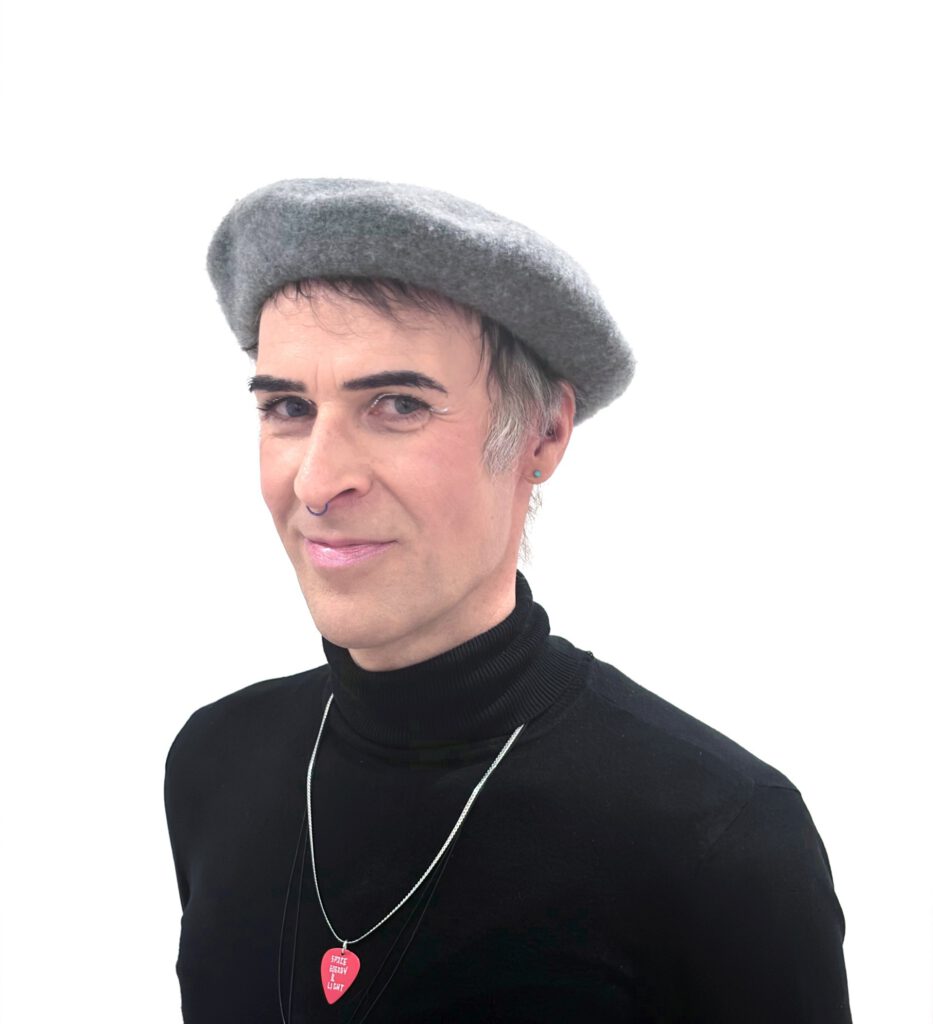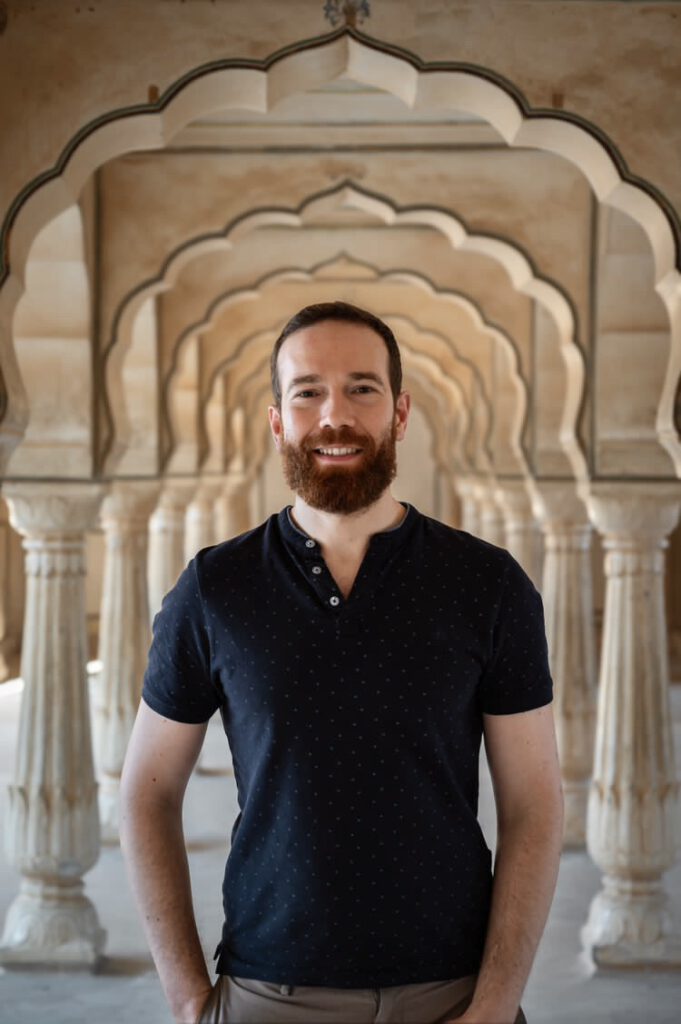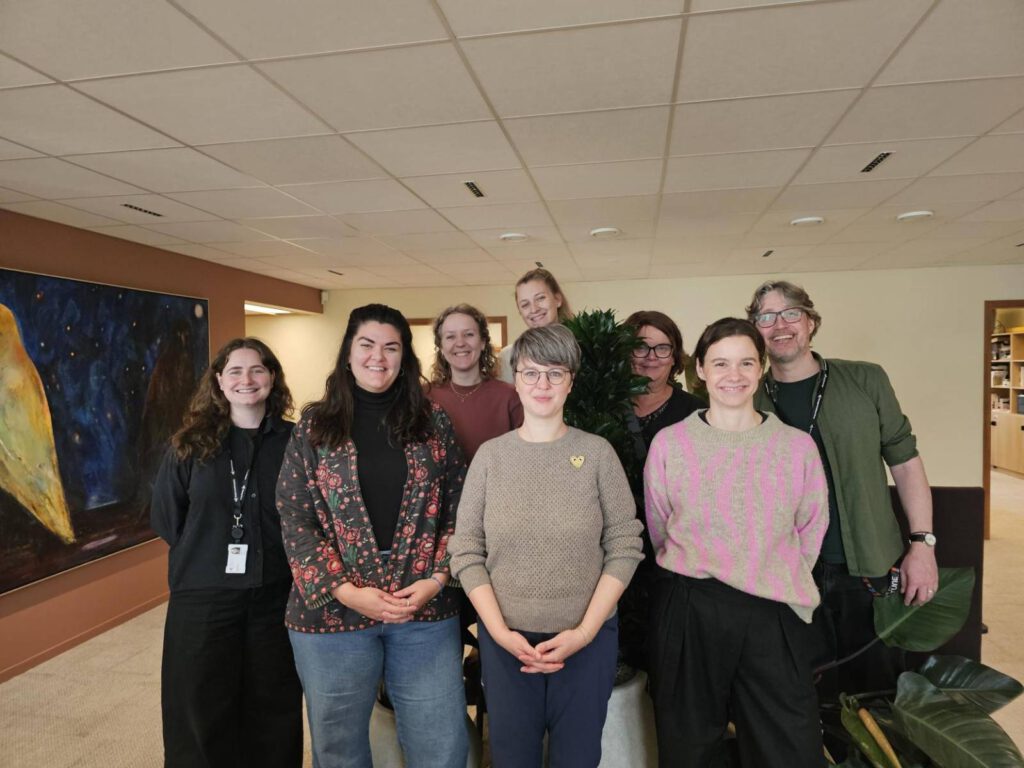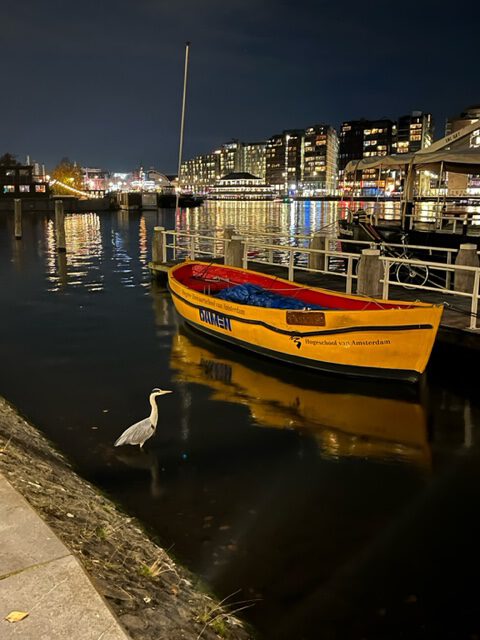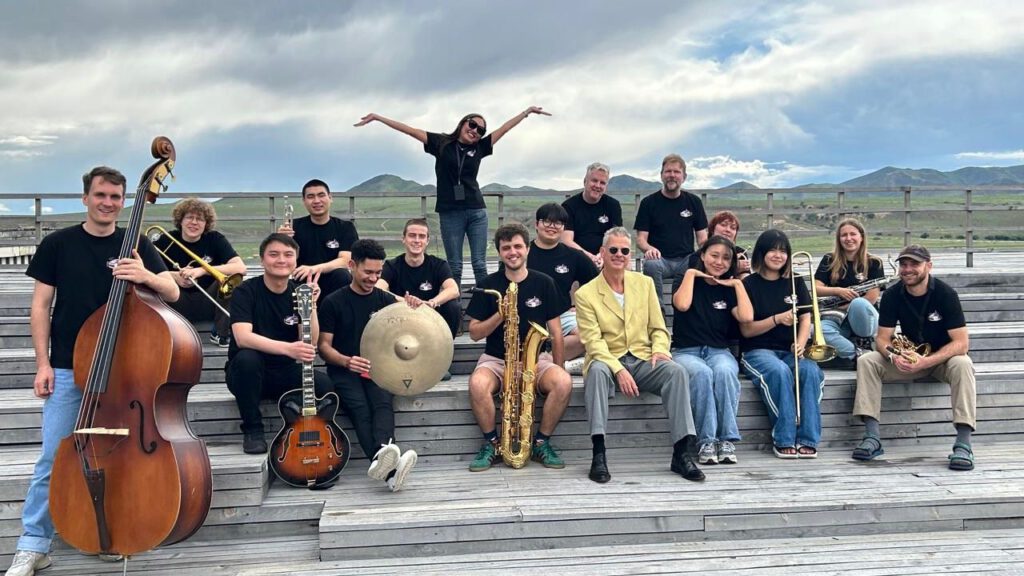My Erasmus Exchange at the Leuphana University Lüneburg
Climate-neutral campus, School for Sustainability, German Solar Prize, and the Leuphana Semester
A bit envious of all the things happening at Lüneburg University in the area of sustainability, and at the same time curious and excited about what ideas I could take back with me to the mdw: this is how my trip to Lüneburg – naturally with the German Federal Railways to save CO₂ – began.
Prior to my departure, I had already been in email contact with Irmhild Brüggen, who was responsible for environmental affairs at the university. She is an appointee of the Presidential Committee, to which she reports and makes proposals. She cared for me very well during the entire week; she arranged my appointments with the various departments and was my go-to person in all matters.
Monday and Tuesday (26 and 27 February 2018)
Aside from a short lunch break, both of these days were filled with scheduled events. I visited the Centre for Sustainability Management, the mobility officer at the School of Humanities and Social Sciences, and the Institute for Ecology.
Every day I walked through the bitter cold through the beautiful old town of Lüneburg for about 40 minutes to the university and then back at the end of the day, my “active break” before and after work. Despite the icy temperatures and snow, there were always many Lüneburgers of every age out on their bicycles.
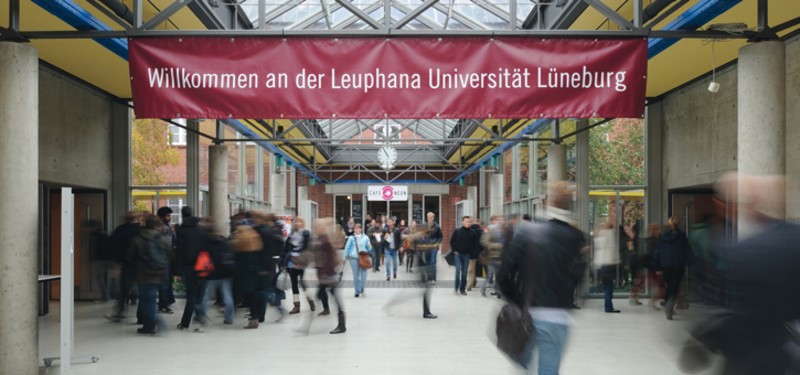
Leuphana University
Leuphana is a young university with about 9,000 students – roughly 14.5 percent of them international students – about 700 teachers (170 of them professors) and approximately 460 staff members in administration.
The guiding principle of Leuphana is based on three fundamental concepts: humanism, sustainability, and action orientation. For the university, sustainability represents an integrated and continuous challenge. In order to research the full breadth of this topic and to offer a wide variety of curriculums related to it, Leuphana has Europe’s first and at present only School for Sustainability.
The campus and the main building (designed by Daniel Libeskind)
Until the mid-1990s, the main campus was used as a barracks for the German military and consisted of 24 traditional, strictly arranged brick buildings. Between them are now bright, modern lecture and library buildings, green areas, and a biotope. The university uses 100 percent green power, is supplied with regenerative heat, and has photo-voltaic systems installed on ten of its buildings.
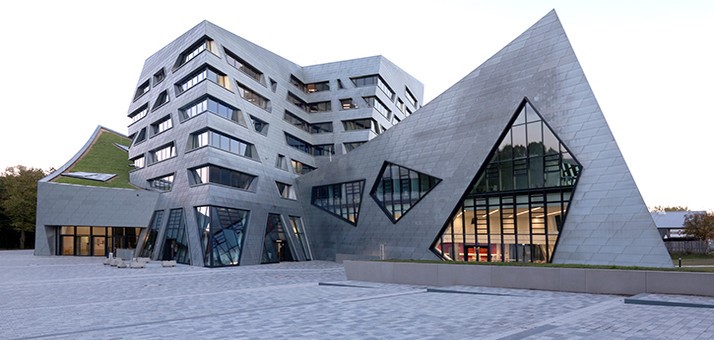
Sustainability in the main building
Leuphana’s main building is in keeping with the university’s commitment to offer a campus that is exemplary in its sustainability. The new main building was presented at the 2010 Expo Shanghai as one of the world’s most energy-efficient public structures.
The innovative and groundbreaking new building is remarkable for its energetic quality, its heating and cooling performance, its energy-saving and self-shading façade, an intelligent user-friendly building-control system, an efficient ventilation concept, and low-energy use for the optimised integration into the campus energy system.
The energy necessary for operations – like on the entire campus – is supplied from renewable sources. Heat comes from a power station operated with biogas, and solar panels on the campus buildings supply additional electricity that already covers 25 percent of total consumption.
Disadvantages
CO₂ lights in the offices: Until recently, the windows only opened when the needle was in the red area. It was then modified so that the windows can now be opened even when the needle is not in the red area.
All light sources are controlled by a movement sensor; they cannot be turned off manually, which was a problem in a seminar where a film was shown.
Note: In a “smart, self-thinking building”, people should control the technology and not the other way around.
Sustainability/special features of the campus
All of the washrooms have only cold water.
Heating is controlled centrally, and the room temperature is generally 20 °C. In some seminar rooms, presence detectors control heating and light, and the heating turns off automatically when windows are open.
LED lighting throughout: since 2014, Leuphana has covered 20 percent of its annual electricity needs with solar-power systems.
Administration
In January 2017, a centralised procurement system was put in place. All purchases must be planned in advance, and this applies to everything from pens to biscuits to the coffee served to visitors. This has often caused great annoyance, but the argument supporting this policy is always: “We survive on tax money, after all.”
Note: Invoices are handled in a very complicated manner: paper forms must be filled out for every individual invoice, and we at the mdw are light years ahead of this. There was great astonishment about our electronic invoice system.
The conference from Wednesday to Friday (28 February–2 March 2018)
Ahead of the opening of the conference, a forum was held in the morning called “Lebenswelt Universität”. This was organised by the Senate Commission on Sustainability for all university employees in order to promote sustainable campus development. I was invited to contribute to one of the workshops, whose themes were “Spaces of Encounter”, “Consumption”, “Promoting Thoughts and Ideas”, and “Health”.
The workshops were all led by teachers at Leuphana. The suggestions developed in the various workshops were presented in front of the individual groups as well as in a larger setting at the conference. The officer for environmental affairs then passed the ideas on to the Presidential Committee.
I opted for “Consumption” and was pleased that with regard to sustainable events, I was able to contribute a great deal from the mdw. All workshop participants were very enthusiastic about our “fairanstalten” seal of quality. There was then a panel discussion about internal communication and networking (that seems to be a problem everywhere), and I was very proud to be able to tell the group about our mentoring and job-rotation programme. I was asked to supply more information via email.
Opening of the conference
The conference was opened by the Orchester des Wandels along with a video installation by the university students in front of 1,100 guests in the auditorium of the main building.
What is the conference week?
Each year beginning in October, over 1,500 first-semester students investigate the future according to topic headings. During the conference, they present their insights from the module “Science Bears Responsibility” to Leuphana and the entire city.
There is a great number of seminars, workshops, student presentations, exhibitions, and films focusing on various themes.
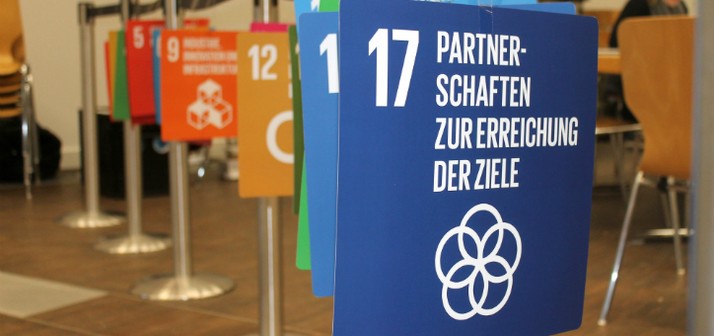
The Leuphana Semester
For over ten years now, students at Leuphana University begin their bachelor’s programme with the Leuphana Semester. In this interdisciplinary introductory semester, each student acquires the ethical and cultural foundation for academic work. The Leuphana Semester consists of five thematically related modules. It begins with a start-off week at the beginning of the semester and concludes with the conference week at the end.
As part of the three interdisciplinary modules Responsibility, Understanding, and Methodologies I, the students intensively explore various perspectives in the academic and scientific world as well as scientific methods.
The interdisciplinary module “Science Bears Responsibility” looks at the social responsibility of scientists. The series of lectures and the accompanying tutorials provide the students with an overview of this multi-layered topic. In the project seminars held parallel to this, the students can find topics on their own and apply the acquired knowledge in the sense of investigative learning in an initial small research project of their own. The students present the results of their work at the end of the semester as part of a student conference. In this way, the students learn in a protected setting precisely the steps that scientists also take in their research process.
Complementary studies
Beginning in the second semester, the main focus of study is joined by complementary studies, in which things like social competencies, language qualification, artistic competencies, and philosophical aspects can be explored in greater depth. The complementary studies are intended to teach interdisciplinary thinking and competencies that extend beyond pure specialised knowledge. Since the 2012/13 winter semester, for example, students have had the opportunity to obtain a Gender Diversity Certificate called “Think Around the Corner”. Leuphana’s degree model has won numerous awards.
Reflections on the trip home
I stand at the Lüneburg train station with a heavy suitcase filled with ideas, thoughts, and reflections. The nearly nine-hour train trip is the ideal period of time for reflection. While a snow-covered landscape passes by the window, I try to organise my thoughts:
It was a very inspiring week and an enriching exchange. I felt very comfortable at Leuphana University. All of my colleagues were extremely hospitable, taking time for me and ensuring I was cared for (there was tea, coffee, and biscuits everywhere).
I realised once again that in many areas, the mdw already acts in an innovative and exemplary manner.
For years, our university has had an electronic invoice system that is simple and unbureaucratic.
Mentoring and the job rotation programme have also long been part of human resource development. Since the beginning of 2018, the mdw has used green power exclusively.
Since the “green mdw” has been part of the Vice Rectorate for Organisational Development, Gender & Diversity, even more changes have been made. Let’s dare to embark on new, unfamiliar paths towards the future and to equip our students with the necessary abilities and skills to work actively to craft a sustainable development.
Arrival at Vienna’s Main Station.
Sincere thanks to all who made this trip possible!
Information on sustainability at the university is available on the green mdw website:
Are you mdw staff and interested in visiting one of our partner institutions?

